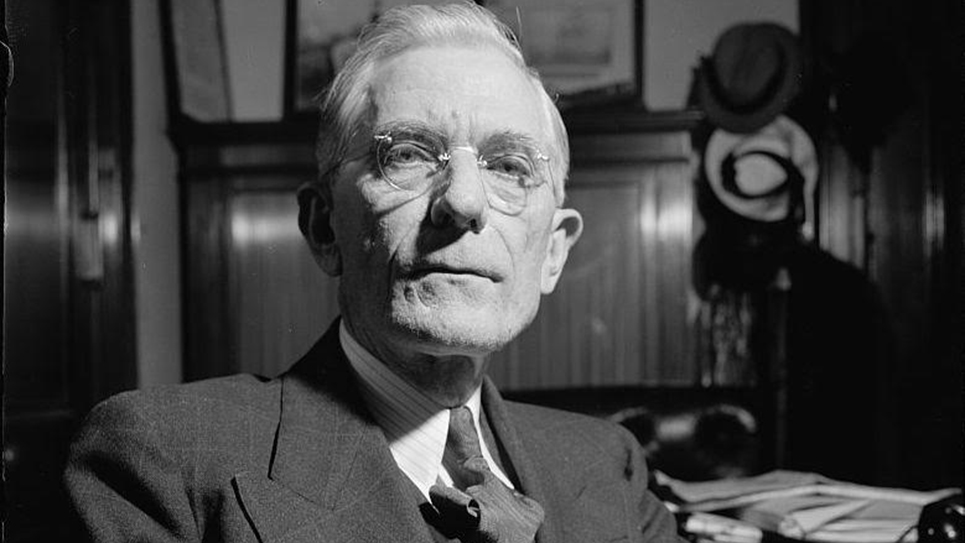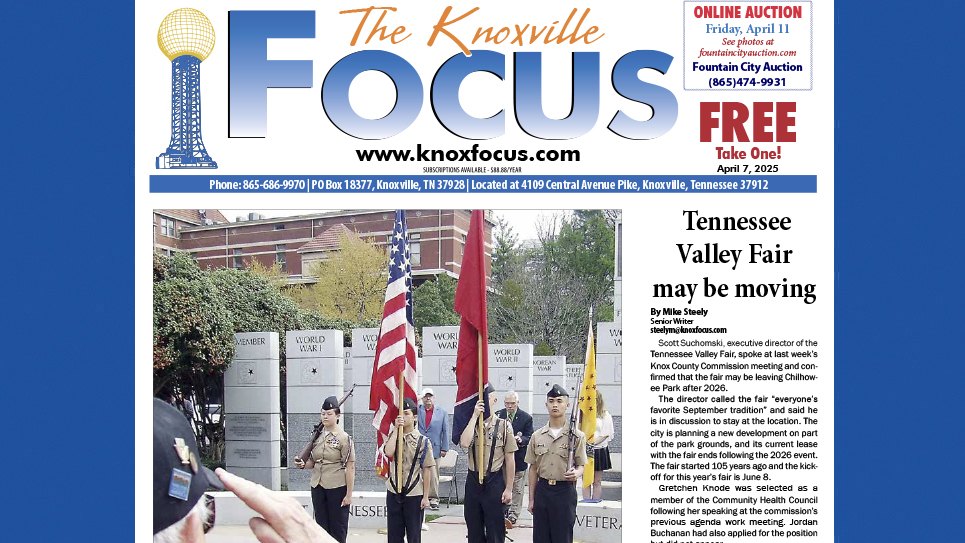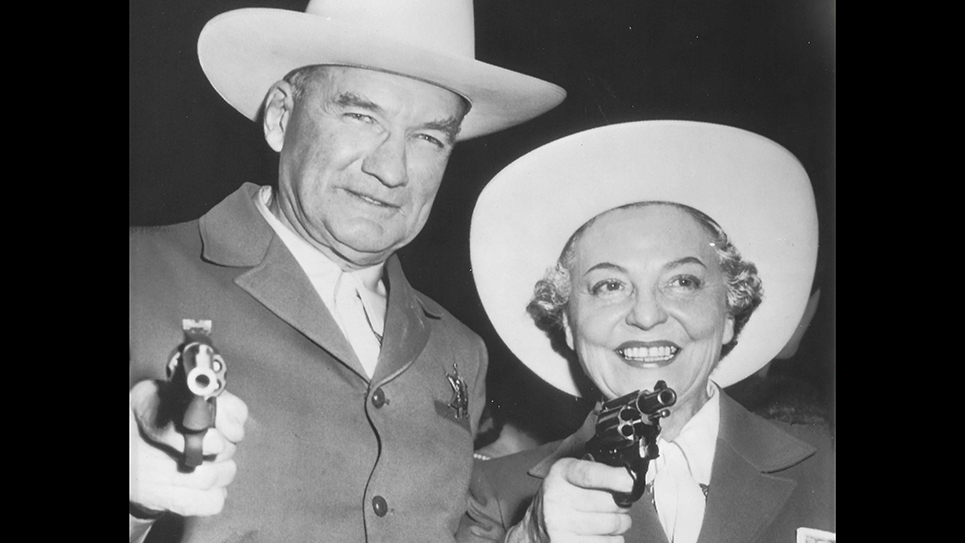The Gentleman From Florida: Charles O. Andrews
Few, if any, regular readers of this column will ever have heard of Charles Oscar Andrews, but for a decade he represented Florida in the United States Senate. Thin to the point of being gaunt, Andrews looked older than he was. Andrews was bespectacled, with a thatch of white hair atop his head. Charles O. Andrews looked like exactly what he was, a mildly prosperous lawyer. Andrews was an unlikely member of the world’s most exclusive club and his original arrival in the Senate surprised just about everybody but himself.
A native of Florida, the son of a Confederate veteran and a veteran of the Spanish-American War while he had been a member of the Florida National Guard, Andrews became the secretary to the Florida State Senate while studying to earn his law degree. Andrews began the practice of law in DeFuniak Springs, but apparently things didn’t go as he anticipated, and he returned to his post as secretary for the Florida State Senate in 1909 and remained there for two more years. At the same time, Andrews was appointed a judge of the criminal court for Walton County, a position he held for a year. It was the beginning of a number of similar legal posts the young attorney held. Andrews was appointed as an assistant state attorney general and then served as a judge of the 17th District Circuit Court. Andrews was briefly a member of the Florida House of Representatives before becoming the city attorney for Orlando and then commissioner of the Florida State Supreme Court.
In 1936, both of Florida’s United States senators died. Duncan Upshaw Fletcher was Florida’s longest-serving senator, having first gone to the U.S. Senate in 1909. The 77-year-old Fletcher died of a heart attack in Washington, D.C., on June 17, 1936. Park Trammell had been governor of Florida before winning election to the U.S. Senate in the 1916 election. Trammell had only narrowly won the Democratic primary, barely edging out newcomer Claude Pepper. Sixty years old, Senator Trammell died in Washington, D.C., on May 8, 1936. Charles Andrews announced his candidacy to fill the seat of Park Trammell in the 1936 special election. The winner of the election would serve out the remaining four years of Senator Trammell’s term.
Few political prognosticators gave Andrews much chance of winning the Democratic nomination, which at the time was tantamount to election. Most observers believed the favorite for the Democratic nomination was Doyle Elam Carlton, who had been elected governor in 1928. Carlton served at a time when Florida governors could not seek a second consecutive term. Yet Governor Carlton’s term had brought several difficulties and challenges, including a hurricane that wreaked severe damage in the Sunshine State. Carlton also occupied the chief executive’s office when Florida’s real estate boom crashed and the Great Depression began, which caused profound financial hardships for Floridians.
The former governor was endorsed by the Democratic State Executive Committee when the race to fill Park Trammell’s seat began. The primary source of news was newspapers and Carlton managed to win the endorsement of most of the newspapers in the Sunshine State. Both of Miami’s daily newspapers endorsed Carlton’s candidacy as did one of the Jacksonville newspapers. Other dailies in Tampa and Pensacola added endorsements to the former governor’s bid for the Democratic senatorial nomination.
Andrews was making his first statewide race and had managed to cobble together a coalition of organizations and voters opposed to Doyle Carlton. Andrews also appealed to the supporters of Dr. Francis Townsend, the originator of a scheme to provide every senior citizen with $200 per month, the entirety of which had to be spent the same month it was received. As the election returns began being tabulated, Andrews moved into the lead and never relinquished it. The strong support given to the former governor in many of the newspapers were largely ignored by those voters who trudged to the polls to cast their ballots. Andrews carried Duval County (Jacksonville), as well as Dade (Miami) and won his home county or Orange (Orlando) by a three-to-one margin.
Andrews had pressed his platform of pensions for the elderly, as well as restitution by the federal government for Florida’s citrus growers, who had been devastated by an onslaught of Mediterranean fruit flies, losing most of their crop. Andrews also called for help for the farmers, improving Florida’s waterways, and bringing more Army and Navy bases to the Sunshine State.
When the campaign first began, Andrews had been practicing law with his new partner; his 25-year-old son, Charles Jr., who also did double duty as his father’s campaign manager.
Both Charles O. Andrews and Claude Pepper were sworn in as soon as their election in the November general election was certified by the Florida Secretary of State. Pepper would garner much notice in Washington, D.C., for his oratory and his drift toward the Left, while Andrews wasted little time on speeches and quietly went about the business of representing his state in the United States Senate. Florida’s two senators were a contrast of opposites; Pepper, tended to be more portly and hearty, while Andrews was thin and frail. Likewise, the two men approached their duties in the Senate differently. Andrews was quiet and assigned to more committees than seemingly any other member. Charles Andrews tended to his committee work and assiduously looked after the various industries and the agricultural interests of the Sunshine State. Pepper gave loud and vociferous support to President Roosevelt’s New Deal and foreign policy while Senator Andrews took a more cautious approach.
There was considerable speculation in 1940 that Andrews would accept a federal judgeship rather than seek reelection to the U.S. Senate. The appointment never materialized as Andrews was sixty-two and the Roosevelt Administration was reasonably strict in refusing to nominate any prospective judge who was past sixty. Andrews sought a full six-year term in 1940 and the Democratic primary was a free-for-all. Governor Fred Cone entered the contest, as did magazine magnate Bernarr Macfadden, veteran politician and frequent candidate Jerry W. Carter, and two others. Andrews’ approach to his job in the Senate was appreciated by Floridians who liked his clear devotion to duty and his hard work.
Andrews ran first in the primary, but he was forced into a run-off election with Jerry W. Carter. Much of the campaign was handled by surrogates in the second primary by staff members as Andrews was preoccupied with hearings in Washington as a member of the Naval Affairs Committee. It was a vital assignment for a senator from Florida and critical at a time when war clouds hovered on the United States with bloody warfare spreading across much of the globe. As a member of the U.S. Senate, Andrews had quietly but resolutely pushed the development and expansion of federal facilities for the Sunshine State. While Jerry Carter toured the state, Senator Andrews’ office released a steady flow of press releases detailing federal spending in Florida. Andrews spoke over the radio, broadcasting to Floridians from Washington, D.C., noting his interest in national defense did not begin with recent developments “or the second primary,” a not so oblique criticism of his opponent. Andrews pointed out the current military projects in Florida would amount to more than $100 million in spending when completed. Senator Andrews readily acknowledged his campaign would almost certainly be better off were he in Florida to press the flesh personally, but said he was remaining at his post of duty for the welfare of the country. Andrews ticked off all of his efforts for the primary agricultural and business interests important to the Sunshine State and its residents. Floridians agreed and Senator Andrews thrashed Carter in the second primary, winning quite nearly 70% of the ballots cast.
While many candidates for public office likely invoked and asked for votes with their devotion to their duty, in the instance of Charles O. Andrews, it was true. The Florida senator was a workaholic. Andrews also repeatedly made unsuccessful efforts to change the rules of the U.S. Senate. Andrews introduced legislation that would require all laws adopted by Congress to encompass only one subject. “Many worthy bills are defeated under the present system because someone attaches a highly controversial amendment to the original measure,” Andrews explained to a reporter. Such amendments were oftentimes called “ripper amendments” because if adopted, they usually made the bill under consideration objectionable to even its sponsors.
The senator lamented some of the more archaic vestiges of the Senate. “You know in the Senate we still keep the old snuffbox right up there where it’s been for more than 80 years, with a fresh supply of snuff, though nobody ever dips into it. And there’s a little silver box on each desk. What do you think is in that? Burnt sand that we’re supposed to use when we sign our names in ink. Well, our legislative system is about as anachronistic.” That was the comment made by United States Senator Charles O. Andrews of Florida when he described the Congress in October of 1944.
As the Second World War raged across the globe, Charles Andrews never let up his constant work and it began to take a toll on his health. Never robust, Andrews began to ail seriously, suffering from a heart condition. Politically, as it always the case with an older, more experienced officeholder, a younger, more energetic challenger begins to emerge on the horizon. Spessard Holland, elected governor in 1940 as Andrews won reelection to the U.S. Senate, had proven to be a highly popular chief executive and left office the same way. Some reporters believed Spessard Holland was the most popular former governor in the Sunshine State’s history. Holland was anxious to move up to the Senate, but he opted not to challenge Claude Pepper for reelection in 1944. By 1945, Spessard Holland was looking at the Senate seat held by Charles Andrews with longing eyes. Holland had made no announcement as he considered himself a good friend of the senator’s and was reluctant to run if Andrews wanted to seek reelection. Senator Andrews was candid and said another campaign “would no doubt impair my ability to carry on” with his responsibilities in Washington, D.C.
On October 30, 1945, Senator Charles O. Andrews ended the speculation, saying he would not be a candidate in the 1946 election. When told of the statement issued by Senator Andrews, Holland was gracious enough to realize the day didn’t belong to him and praised his friend’s service and refused to comment upon his own plans. Holland did eventually announce and ran to succeed Charles Andrews.
As it happened, Senator Andrews was more seriously ill than perhaps anyone outside his immediate family realized. Finally, Andrews became so ill he was absent from the Senate floor for much of the last session of Congress in 1946. One Florida newspaper gently suggested Andrew resign his Senate seat and allow the governor to appoint a successor in order to spare his health. Andrews batted away the notion, saying he intended to finish out his term.
The senator seemed much improved but in September Andrews was admitted to Bethesda Naval Hospital. A week later the 69-year-old Senator Andrews died.
Governor Millard Caldwell was in New York on state business when informed about the senator’s passing. Caldwell remembered Charles Andrews as “a splendid gentleman, a good Senator, level headed, who had common sense and was courageous.” When queried about appointing a successor, the governor angrily snapped he would have no comment as to a possible successor for several days.
Governor Caldwell offered the appointment to serve out the remaining months of the late senator’s term to his widow. Mrs. Andrews stated her gratitude for the governor’s gesture but said quietly, “I feel that I should begin the retirement to private life now, rather than on January third as Charlie and I had planned.”
© 2024 Ray Hill







